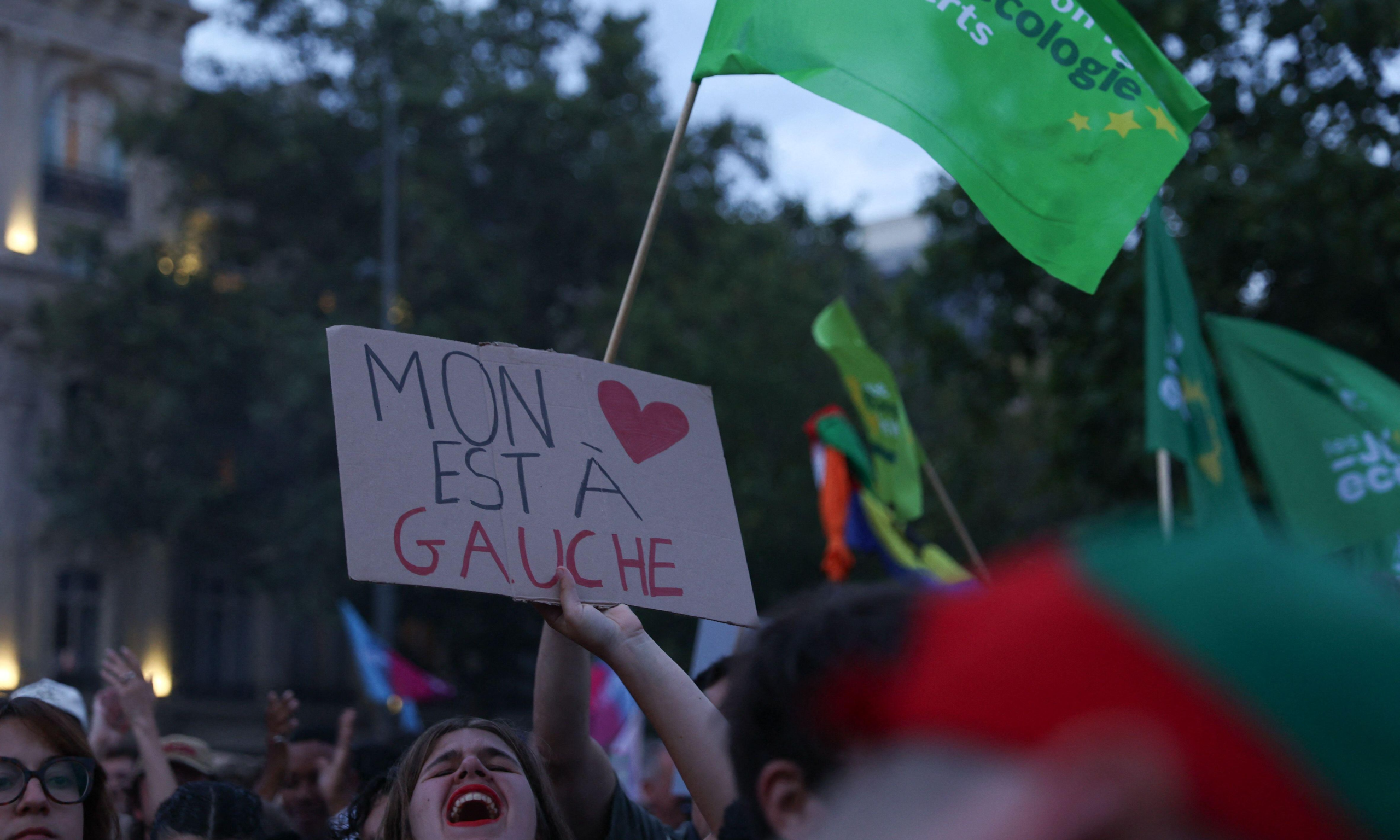A demonstrator holding a placard with the message, my heart is on the left, at a rally in Paris Photo: Christophe Michel/Abacapress.com
The cultural sector in France breathed a sigh of relief on Sunday night when the final results of the parliamentary election were announced. The left-wing New Popular Front won the most seats with 182 seats, but failed to win an overall majority, leaving France to face a hung parliament. Ensemble, President Emmanuel Macron's centrist coalition took 168, while Marine Le Pen's far-right National Rally came third with 143 seats, only half the number opinion polls suggested before the vote.
Predictions that the xenophobic party could become the biggest force in the lower house of parliament mobilised large swathes of the electorate against its candidates, ultimately leading to its defeat in the second round of voting. Before the election, professionals from the education sector, the arts, sports and sciences were the first to sound the alarm against the dangers posed by a hard-right government, launching appeal after appeal in the daily newspaper Le Monde.
One thousand doctors, scholars and researchers urged the public to “reject the obscurantism”, followed by 800 artists and culture leaders who called on voters “to preserve the France of the Enlightenment”.
For the first time in a French election, the university deans and directors of the elite grandes écoles met to denounce a political policy “based on exclusion, fear and rejection of others”, which would “endanger the humanist values of tolerance, openness, intellectual curiosity and critical minds, threatening higher education as a whole”.
The Collège des académies et sociétés savantes, representing 40,000 teachers and researchers, claimed that “French research would pay a huge price for a victory of the National Rally”. One thousand historians, meanwhile, urged to “vote against a party shaped by the nationalism, racism, anti-semitism, violence and brutality of the French traditional extreme right”.
The French committee of art historians warned against the “xenophobic hold up of cultural heritage” and the union of art gallery owners said its “values are not those of the National Rally”. The director of the Festival d'Avignon, Tiago Rodrigues, organised a night-light performance “against the far right”.
Seven hundred high school principals and academy inspectors went even further, stating they would “disobey any measure contrary to the values of the Republic”, such as discriminatory action against pupils of foreign origin.
The art world, which is heavily dependent on public support, raised concerns about potential cuts to state subsidies by a National Rally government. Le Monde published an investigation focused on southern cities ruled by National Rally mayors, which revealed that culture venues faced budget cuts and selective support depending on their political allegiance. “Countries like Hungary and Italy have shown the way”, said the appeal by 800 cultural leaders, “cutting public funding for culture, replacing directors of museums or theatres and dismembering public broadcast companies”.
However, nobody knows what will happen next. Even if a government is formed, it will be fragile and in constant danger of collapse—and the French are not known for their willingness to compromise.
All major public projects, including the law for the restitution of colonial goods, have now been suspended. Culture was notably absent from the electoral campaign, although the New Popular Front did call for the culture budget to be raised to 1% of the national budget—an increase from €4.2bn to €25bn with no plan as to how this increase would be funded.
At present, the culture ministry is dealing with a €200m budget cut that has resulted in significant subsidy reductions at arts venues including the Paris Opera, the Comédie Française and the Musée du Louvre.

